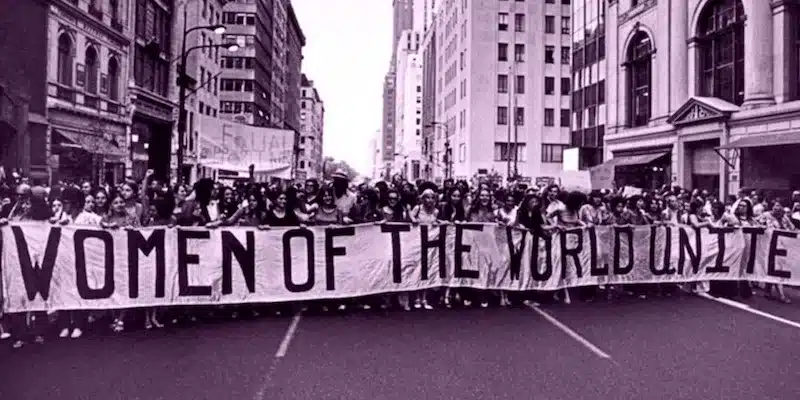Feminine Forces in the Supply Chain: How to Create More Opportunities for Women in the Industry

International Women’s Day is on Friday, March 8, 2024, and at the IMM Graduate School, we believe it is essential to shed light on the frequently underestimated yet profoundly influential role of women in the supply chain sector. Traditionally viewed as male-dominated, the supply chain encompasses intricate networks spanning production, distribution, and logistics. Nonetheless, perceptions are evolving, with a heightened acknowledgment of the indispensable contributions women offer to this dynamic industry. This blog delves into the imperative for increased opportunities for women in the supply chain field, along with the ways organisations and educational entities can foster a more encompassing atmosphere.

The Present State: Historically, the supply chain sector has shown gender imbalances, often side-lining women in critical roles. From warehouse operations to transportation management and strategic planning, there’s a noticeable disparity demanding attention. Recognising the diverse talents and perspectives that women offer isn’t solely about parity but also a strategic necessity for driving innovation and sustainability in the supply chain.
Creating Opportunities:
- Promoting Fair Hiring Practices: Companies can take proactive steps to ensure equal opportunities for all genders in the supply chain workforce. By adopting impartial recruitment methods that prioritise skills and qualifications over gender, the gap can be reduced. Programs like mentorship and internships specifically designed for female applicants can also encourage greater female representation in the field.
- Nurturing Professional Growth: Fostering the advancement of women’s careers within the supply chain environment is paramount. Introducing educational initiatives such as training sessions, seminars, and gatherings tailored to the unique hurdles encountered by women in this sector can significantly bolster their competencies and progression. As an example, the IMM Graduate School offers tailored supply chain certifications that equip individuals with the expertise and capabilities requisite for success in this domain.
- Showcasing narratives of triumph: Displaying tales of achievement from women who have excelled in the logistics sector can ignite inspiration among others to tread similar paths. Commemorating accomplishments and amplifying the visibility of female trailblazers can dismantle preconceptions and offer blueprints for aspiring professionals.
Success Narratives of African Women in the Supply Chain Industry:
- From the heart of South Africa, Jenny Froome shifted her focus from event management to supply chain management. Currently holding the role of Chief Operating Officer (COO) at SAPICS, the professional association for supply chain management in South Africa, she also serves as a director and founding partner at Upavon Management. Jenny is committed to elevating the standards of supply chain management and nurturing a community of knowledgeable professionals across the African continent. Her sense of accomplishment comes from witnessing the flourishing careers of SAPICS members.
- Carine Toure Yemitia, situated in Côte d’Ivoire, has forged her career path in logistics despite facing initial setbacks. Progressing from a position as a Logistics Assistant to overseeing regional procurement for 24 nations in West and Central Africa on behalf of the UN organisation IFAD, Carine exemplifies perseverance and commitment. Serving as the Chairperson of Women in Logistics and Transportation (WiLAT), she provides guidance to women across 30 countries, advocating for gender inclusivity within the supply chain sector.

Closing Thoughts:
In light of this year’s observance of International Women’s Day, let’s pledge to cultivate a more inclusive and varied supply chain sector. Offering equitable opportunities for women is not solely a societal obligation but also a strategic manoeuvre that yields benefits for firms, the sector itself, and the broader community. By advocating for impartial hiring protocols, fostering professional growth, nurturing inclusive workplace environments, and amplifying instances of achievement, we can ensure that the pivotal contributions of women in the supply chain are duly acknowledged, celebrated, and granted the recognition they rightfully merit. Let’s unite to shape a future where gender parity transcends mere aspiration, becoming a reality within the dynamic world of supply chain management.
